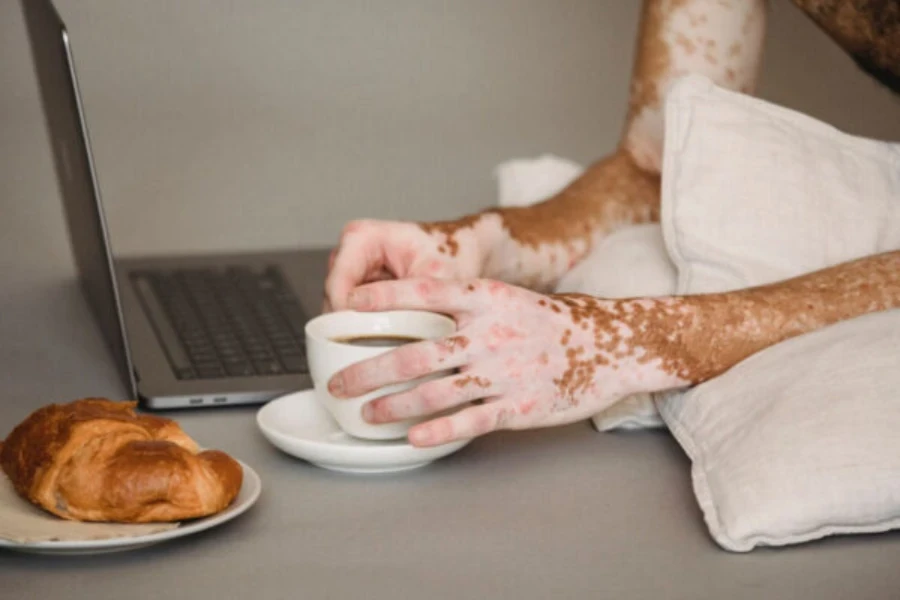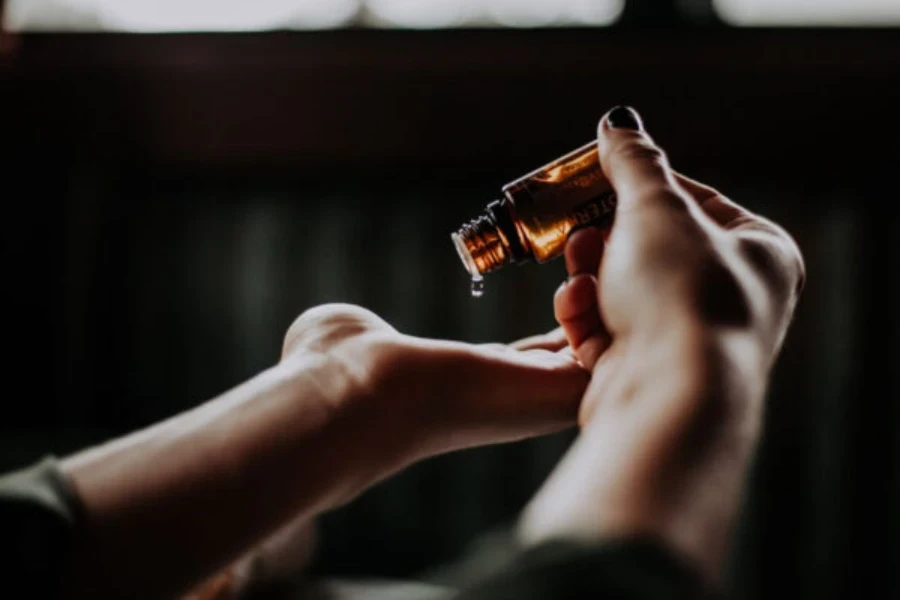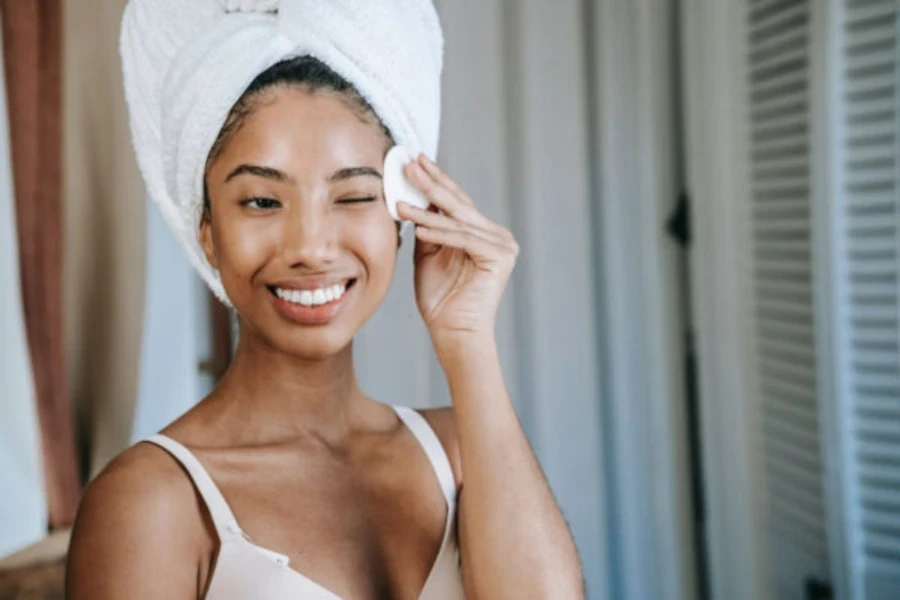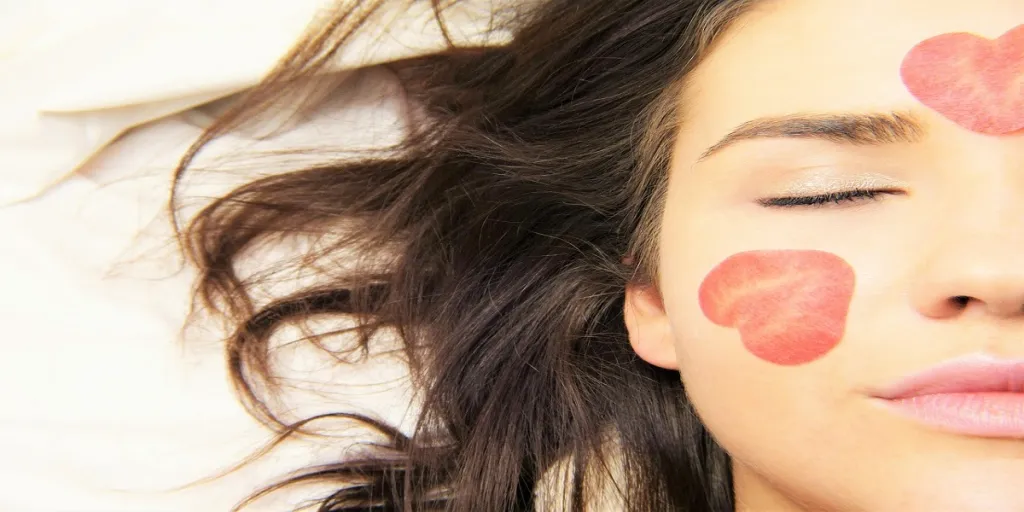Experts report there’s a link between skin health and psychological stressors. A study by the American Psychological Association reports that depression, anxiety, and other mental health problems can exacerbate skin concerns.
Consumers are becoming more in-tune with their mental health, wanting to add mindful and self-care practices to every step of their beauty regimen. Skincare brands are becoming aware of this movement, adjusting their formulations to decrease stress while improving skin health.
How can beauty brands tap into this movement? Here are the key trends from the mind-skin connection.
Table of Contents
Overview of the mind-skin connection
Trends in the mind-skin connection
Conclusion
Overview of the mind-skin connection
Psychodermatology is the basis of the mind-skin connection. The National Institute of Health defines psychodermatology as addressing “the interaction between mind and skin.” This combines the effects of psychological stress and dermatology, addressing how emotions and mental health play a role in external skin health.
Psychodermatology can be broken down into three categories: psychophysiologic, which is how emotions affect skin health, primary psychiatric disorders, which are how mood affects the skin (which also includes self-inflicted skin ailments and hair loss), and secondary psychiatric disorders, which are how skin health affects the mood (i.e., negative body image and self-esteem issues).
The following trends in psychodermatology address all these issues and even include formulas that will relax the mind and skin, target sensitive skin, and more.
Trends in the mind-skin connection
Modern consumers want to de-stigmatize conversations and understand how their stress response affects skin diseases. The current trends in psychodermatology are stress-less products and ingredients, when beauty meets mental health, going back to ancient cultural rituals, and a boom in brain care.
Stress-less solutions
Stress is a worldwide problem. Work burnout and financial problems are the main culprits, though this isn’t the only category. Around 19% of U.S. adults have an anxiety disorder, which can exacerbate existing skin disorders.
It’s no surprise that stress has a major impact on skin health. WebMD reports stress can cause itching, rashes, breakouts, bumps, and more.
We can blame cortisol for this. Cortisol is nicknamed the “stress hormone” since it activates the fight or flight response. It also manages the inflammatory response and immune system, so high cortisol levels may contribute to eczema and acne.
How can businesses combat stress and skin issues? The key is creating the right formulas. Chamomile is a sleep-inducer, perfect for adding to any nighttime or sleep-time product.
Targeting the skin problems that stress causes is also a solution. Since acne is a common side effect of stress, create a stress-acne line with powerful ingredients such as benzoyl peroxide that consumers can easily add to an existing skincare routine.
Beauty meets mental health

Due to both primary and secondary psychological distress, the “beauty meets mental health” movement is taking over. In a survey, three in five respondents state their skin conditions have a big impact on their confidence.
Consumers demand a “no to normal” outlook on beauty, meaning the beauty community is more inclusive and targets all skin problems–even ones that aren’t mentioned frequently, such as atopic dermatitis and psoriasis.
In addition, consumers won’t support brands that force customers to feel shameful about their skin; instead, the modern consumer demands companies embrace inclusivity and target mental health concerns, such as chronic stress.
There are a couple of ways that businesses can approach this demand. First, sell general products everyone can use, such as facial toner sprays. Instead of selling makeup products that create a sense of shame, such as full-coverage foundations, sell simple cosmetics, such as eyebrow pencils, that accentuate the features while not covering up anything.
Businesses that offer targeted solutions can tailor their marketing to simple and affordable solutions, such as acne patches. Accentuate psychological stress in your marketing and how consumers can reduce their anxiety.
Ancient culture rituals

The mind-skin connection exists in many cultures, even in ancient rituals. For example, research shows that massage therapy dates back to 3000 BCE in India and was used as a sacred system for healing.
Businesses can tap into this ritual by offering massage oil, using ingredients such as lavender to reduce symptoms of depression and stress while improving sleep quality.
Businesses can also use certain ingredients that were once used in healing rituals. Centella Asiatica is an excellent example; this ingredient is an adaptogen used for thousands of years in India as an anti-aging ingredient.
Turmeric is also an effective and historic ingredient–it was used in Ayurvedic and ancient Chinese medicine to treat various inflammatory conditions in people.
Some consumers prefer buying products inspired by certain regions. Even though most know K-Beauty as a current trend, South Korean beauty can be traced back to the Silla Dynasty.
Brain care boom

Mental health support is going further, with businesses offering solutions for the brain-skin connection. Even though the industry mainly consists of supplements, there are some ingredients that beauty companies can offer as a self-care brain health alternative.
Probiotics are a perfect example. While most know probiotics as an ingredient that improves gut health, the gut and brain have a deep connection. Therefore, probiotics are said to enhance brain health.
Probiotics are becoming a demanded ingredient in skincare products, so businesses can sell a skincare set containing probiotics.
Essential fatty acids are also said to enhance memory, learning abilities, blood flow to the brain, and overall cognitive well-being. Ingredients such as avocados are a natural source of essential fatty acids and are easy to add to skincare products, specifically creams and serums.
While beauty brands already know that antioxidants prevent and even reverse physical anti-aging symptoms, these effects also reflect memory and brain health. This is why brands can sell more products powered by antioxidants.
Conclusion
Psychology and skin health are entwined, so the mind-skin connection is one of the most important trends in the beauty world. Businesses can meet these demands by developing products that reduce emotional stress levels, focusing on mental health, looking back to ancient rituals, and developing products that support the brain.
Businesses must keep up with the latest trends and consumer demands to remain competitive. The Baba Blog offers these resources and more. Continue reading about what’s new in the beauty and personal care industries.




